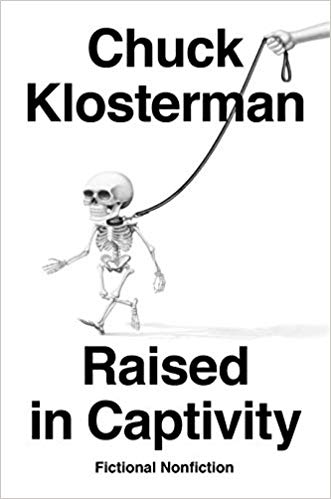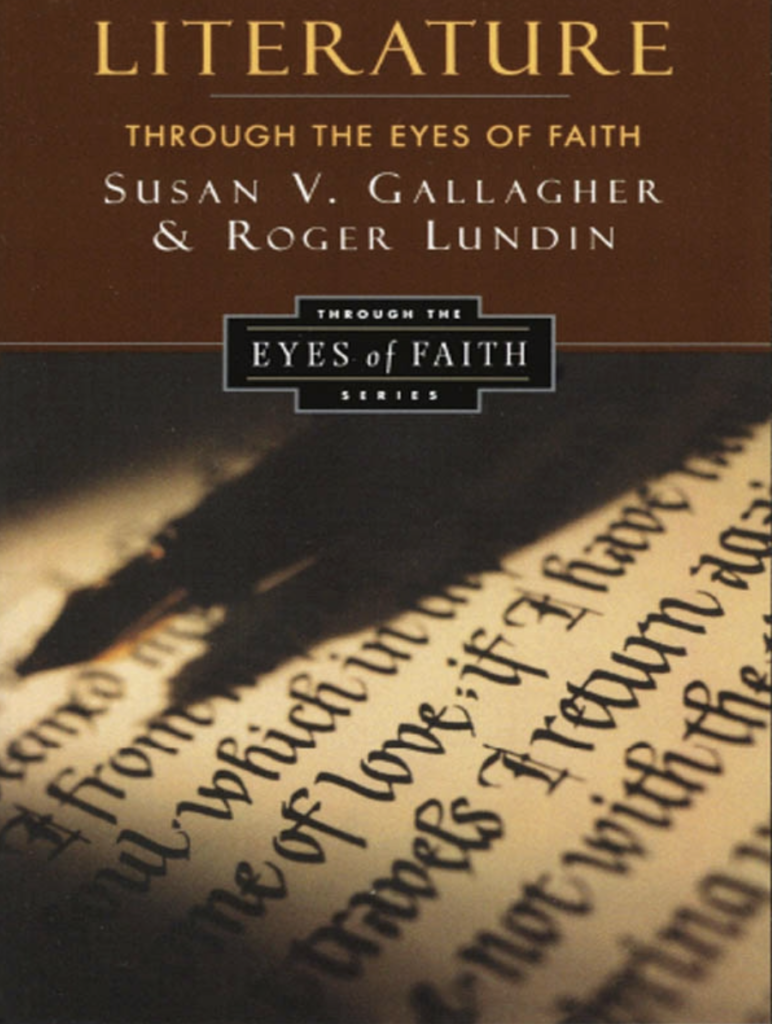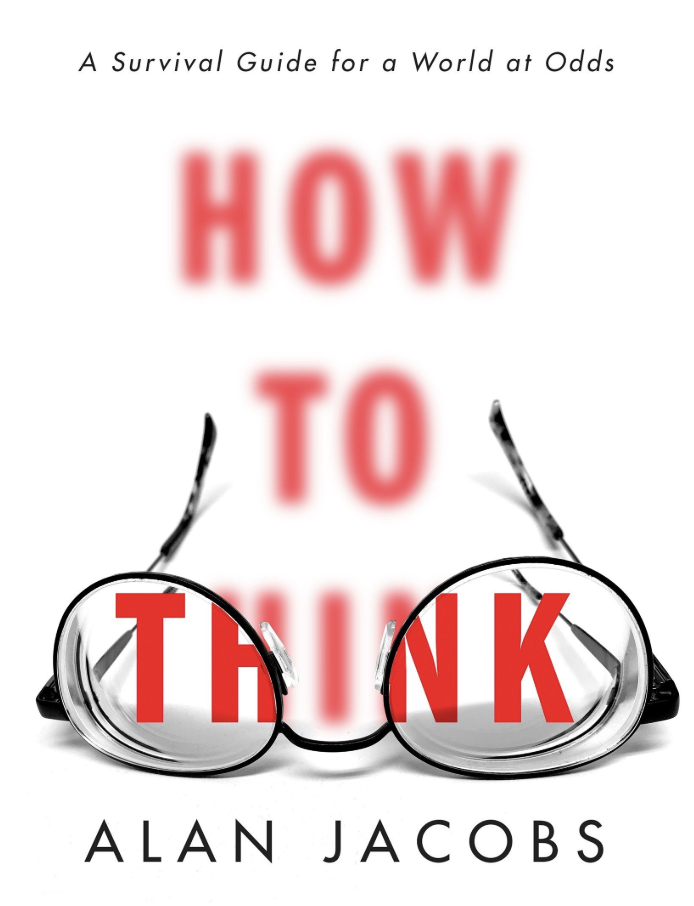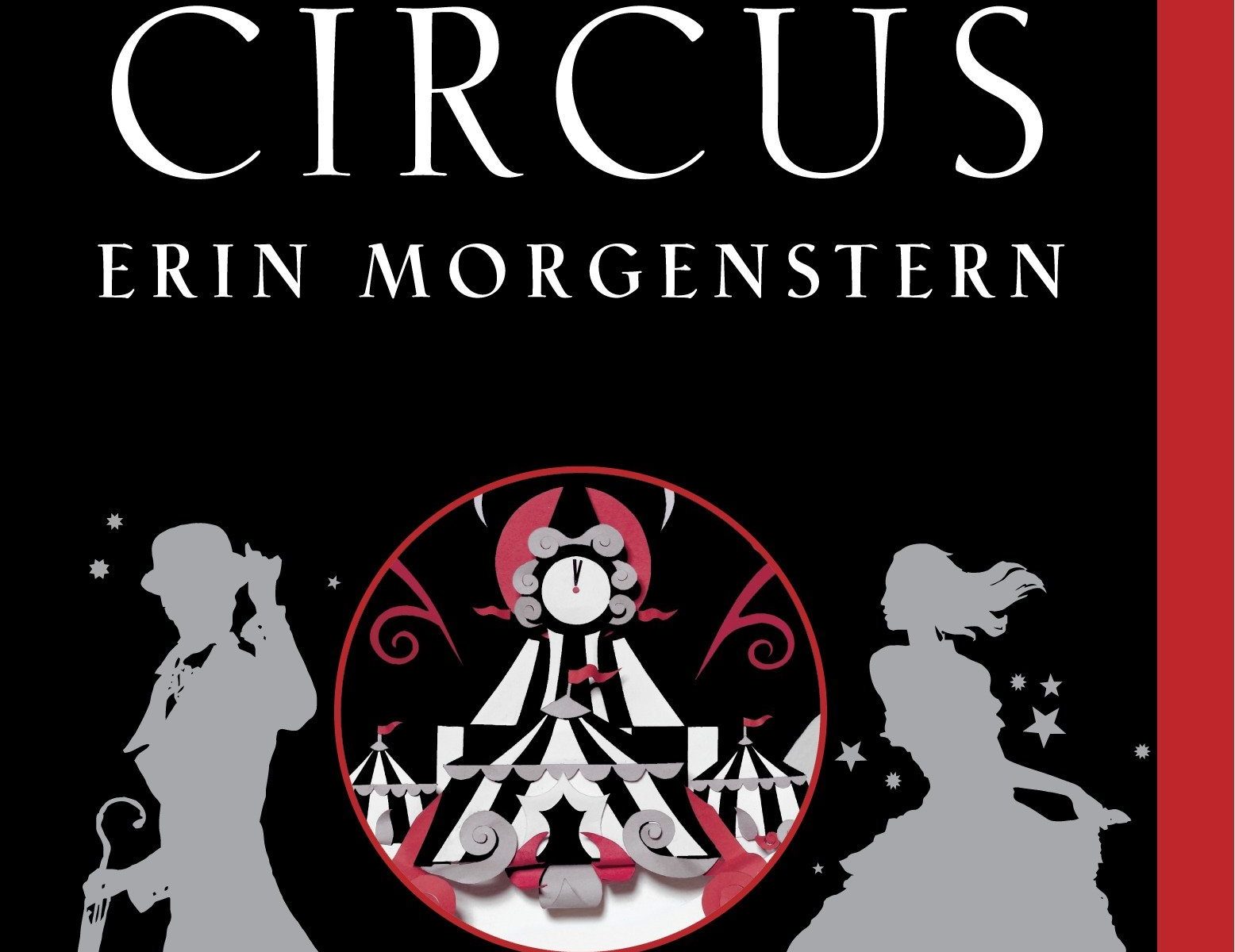- How can reading and writing help us love other people more?
- How would someone get you to change your mind?
- How can you persuade people to change their minds?
- How can we glorify God in our reading and writing?
- How do you know if someone is no longer sane?
- Can good people commit murder?
- Is an affair ever worth it?
- Are secular novels better or worse than Christian ones?
- What is a Christian novel anyway?
- Are sad novels better or worse than happy novels?
- What is a sad novel anyway?
- Do you want to know the future?
- Does it matter HOW you make an argument as long as your conclusion is right?
- What would you change or keep exactly the same from high school?
- What is something you wish people on campus would talk about more?
- What makes a good storyteller?
- Do you have good taste?
- What problems that face the people who do what you want to do for a living, and what are some possible solutions?
First Principles: Teaching Reflection
Every summer I tell myself to just let my courses be. I can keep the syllabus, I reason, but tweak the in-course execution of my overall plan.
It never works, however. As I pray and read and think about what my students struggled with during the previous year, I always end up changing something. This summer was no different: new assignments, new course schedule, and a new assessment approach.
The tension I felt acutely this week was that my focus was supposed to be on living out God’s commandments rather than simply learning about them or passively believing them. What did that look like for me as I put together my assignments and assessment percentages for the new semester?
Continue reading “First Principles: Teaching Reflection”Reading Log
Raised in Captivity – Chuck Klosterman

In his first collection of short stories, Klosterman presents fictional answers to implicit hypothetical scenarios. What would you do if you encountered a puma in an airplane lavatory? How do you communicate through an ad the quantum leap of a new product? Can someone get a little rabid from a rabies shot, and if so, how responsible are they for seeming menacing? What happens when the wrong kind of fans make a song you made popular though the fans seemed to have missed the point of the song? My questions are a bit too specific. Klosterman is interested in how technology and modernity have made us captive to specific kinds of expectations, perceptions, and experiences. The stories, at their best, alert us to our own chains. What’s shocking is that there’s really nothing in here I would classify as spiritual. Let’s say that one thing these stories are about is the way that we need fictional constructs to help us engage the truths of the world, that we would go blind if we looked directly into some of those truths without protective eye-wear. Then what’s the story in here about growing up Catholic or being a Christian or converting to Buddhism? I’m not saying it’s not here, but it seems like that kind of story should be here and it’s not.
The Ghost Map – Steven Johnson

This is gripping narrative of how two men, a doctor and a minister, helped solve the cause of the cholera outbreak in 19th Century London. John Snow, a doctor, and Henry Whitehead, an Anglican clergyman, collaborated to disprove the miasma theory and locate the source of the deadly outbreak in the water Soho residents were drinking. Johnson’s portrait examines how and why certain kinds of scientific arguments persuade while others fail and how important the marketing of an argument is. For instance, Snow’s two maps of the outbreak were more compelling than any single piece of writing he or Whitehead released to the public. Along the way, Johnson delves into the benefits and vulnerabilities associated with densely populated urban spaces. Snow and Whitehead won a victory for human flourishing in the big city, but Johnson warns we must continue to learn from their example in the era of biological weapons. Johnson’s analysis is indebted to evolutionary theory, and the book’s few mentions of religion reduce it to superstition. Whitehead, Johnson makes it seem, helps solve the cholera plague in spite of, rather than because of, his religious beliefs. What Johnson fails to mention is that one of the reasons Johnson was such a good neighbor to those who were in need was precisely the very real religious convictions he held. What role do spiritual communities play in ensuring the flourishing of the densely populated urban spaces Johnson adores?
Why Liberalism Failed – Patrick Deneen

I’ve just read a couple of chapters, but this book is a really compelling argument that representative democracy—which claims to provide political liberty and human dignity—is the source of the very problems that ail it. I’ve only read the diagnosis yet, not the cure, but Deneen is challenging both conservative and liberal thinkers in this book by going after the greed of the free market, on the one hand, and the disregard for tradition and entrenched forms of community on the other.
The Novel Is A Circus
A novelist is a circus impresario, someone who puts on a grand performance for the reader. The chapters are tents, the characters the circus performers and the narrator a kind of ringmaster. How can you measure one circus against another? For that matter, how can you measure one circus performer against another? What matters is that the audience keeps wanting more, keeps wanting to come back because they sense, albeit dimly, that what they’re witnessing is truly fantastic, something spiritual not just material.
Erin Morgenstern pursues this metaphor throughout her novel The Night Circus. Why night? Probably because the circus is a waking dream, and fiction, Morgenstern’s analogue for the circus, is the mirror image of the daytime and “real life.” In 1870s Victorian England, two magicians challenge one another to a contest via their students. They’ve done this before. The man in gray, Alexander, seems to have won the past few. But now his opponent, who goes by the name Prospero, has his daughter as a student. Alexander claims Marcos from an orphanage as his pupil. Prospero and Alexander set to work training their respective students, and the novel recounts the outcome of their battle.
Continue reading “The Novel Is A Circus”Educational Aspiration: Rhetorical Analysis
In his opinion editorial titled “Aspirational parents condemn their children to a desperate, joyless life,” George Monbiot argues that our culture’s quest for success is actually guaranteeing its opposite. Children are told they can improve their lives, but they are looking at a world that is worse than the one their parents grew up in. Childhood is being stripped from young people as they must begin training for success immediately. Everything from internships in college to getting into the right elementary show how success rather than happiness is culture’s ultimate goal. What makes it worse, Monbiot argues, is that the British government doesn’t seem to care about the mental toll this is taking on the country’s youths. Recent survey results show there is cause for concern. Children are hurting themselves and getting eating disorders more frequently. They feel less secure about their future and have less of a desire to go to school. Monbiot concludes that the very ambition that motivates these children to endure these hardships will rob them of the joy that their material success is supposed to bring.
Continue reading “Educational Aspiration: Rhetorical Analysis”Verse of the Week: I John 2:3
We know that we have come to know Him if we keep His commands.
I John 2:3
To know God is to love Him, and to love and glorify Him is the grand purpose for our lives. In the same letter that declares that God is love, John tells us that we can know if we know God by looking at our actions. Do we keep His commands? Do we love God with everything we have and seek to love others in the way we love ourselves?
This week, I will be using this verse and the questions it provokes to orient my course plans for the new semester. I want to give students the opportunity to do things with what we’re learning. Yes, we will read, and yes, there will occasionally be lectures. My best gauge for their knowledge will not be answers to an exam, however. It will come in the form of practice: note taking, timed writing, revised essays, and multimedia projects.
More than that, I will demand my own participation. I will not just talk about my discipline and its spiritual foundations. I must live them out. I pray that God gives me the grace and skill to do that.
Humor and Faith
Reinhold Niebuhr’s essay on humor and faith situates humor in the context of the Christian life. He begins with a verse from Psalms that records God laughing at sinners: “He that sitteth in the heavens shall laugh: the Lord shall have them in derision.” Because this kind of laughter is pure judgment with no mercy, it represents a point Niebuhr wants to make about humor. True laughter acts as a gateway to the reconciliation of two contradictory principles, like justice and mercy. Thus, Christ is the answer to the derisive God who laughs in the OT, and the cross, while featuring irony, is not a place of laughter. It is deathly serious.
Why do people laugh? Because they are able to discern an incongruity between the way things are and the way they should be. The incongruity of human existence is still too much for laughter to solve. That’s where faith comes. Laughter can be a way of gaining self-transcendence, of experiencing what it feels like to stand outside oneself and discover a greater order existing above the current disorder. This ability has its limits when confronted with humanity’s simultaneous power and powerlessness. If one must err on either favoring a rationality that exalts human strength or humor that admits human frailty, Niebuhr agrees that humor is the better option because an all-encompassing rationality will only lead to despair. True laughter, however, dies away as the sinner enters the holy of the holies. Humor lays the groundwork for true faith in God, the only one who can address humanity’s sin but cannot forgive those sins.
Introduction to Literature: More Fascinating Questions
I continue to deliberate on fascinating problems to present my students with rather than a series of facts with which to stuff them.

My next series of questions come from the first real chapter of Literature Through the Eyes of Faith. I’ve put together question with examples from scripture, everyday life, and literature as possible test case answers. You can find the questions and answers after the jump.
Continue reading “Introduction to Literature: More Fascinating Questions”The Democratic Spirit: How To Think Chapter 7
In this chapter, Alan Jacobs uses a David Foster Wallace book review to tout the two most significant traits of good thinking: rigor and humility.

Wallace’s review demonstrates a person thinking well as review that he is good precisely because it upholds the Democratic Spirit (yes, with capital letters as a kind of tongue in cheek joke). The book Wallace examines is about language usage, and Wallace finds it refreshing that the book’s author, Bryan Garner, is able to offer expert advice without being preachy. In short, Garner manages to write with the authority of a lawyer or doctor rather than a dictator or preacher. This means that Garner meshes rigor (clear answers with solid reasons on all sort of usage questions) with humility (clear explanations that resist the urge to demean, belittle, or assume his position is automatically the correct one).
Once again, Jacobs preaches temperance. We cannot possibly maintain a constant Democratic Spirit about us at every conceivable moment. Instead, we must make a concerted effort to admit where we’ve erred, show a willingness to learn from mistakes, and demonstrate a willingness to believe our opponents might benefit from the extension of that Spirit. This is easier said than done. It’s when reading books like Garner’s, or reviews like Wallace’s, or books like Jacobs’s that we can best see this kind of rigorous and humble thinking in action.
Open Minds: How To Think Chapter 6
In this chapter, Jacobs explains that neither an open nor a shut mind is preferable: the two should work in tandem. Someone who has no set beliefs cannot be trusted. Someone whose every belief is unshakeable cannot be reasoned with.

Jacobs offers two metaphors to help us understand the proper relationship open and shut minds. The first is our appetite. We shouldn’t open our mind unless we intend to close it. If we’re going to think about something, we should be ready to digest it. The second concerns solidity. We should aim for firmness in our beliefs, neither rigidity nor flimsiness.
Sunk costs pose the greatest danger for the person prone to rigidity. Sunk costs refer to unrecoverable resources that one invested cannot be reclaimed. For instance, if you’ve been supporting a cause for 30 years, it will be difficult to renounce your position without putting your identity in jeopardy.
One of the things I’ll insist on my students considering is that college is a time for them to take advantage of their minimal sunk costs which can encourage their flexibility. At the same time, they’ll need to be responsibility not to mistake flexibility for flimsiness under the mistaken impression that changing your mind has no cost or that lacking firm beliefs is a virtue.

